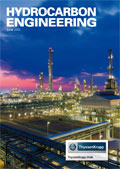Editorial comment
Regular readers of Hydrocarbon Engineering will have noticed that over the last four months we’ve been running a recruitment and employment series. Oilcareers.com kicked it off with a look at the downstream recruitment conundrum and argued that a shift towards unconventionals provides fresh opportunities but greater demands. Solomon Associates followed, arguing that cutting costs at all costs is not a helpful strategy and that streamlining staff to achieve sustainable performance is a much more constructive tactic. Then came PetroSkills and a discussion on what ‘the big crew change’ will mean for industry performance and activity. In this issue, Shell will be completing our series, for the moment, as they outline the challenges facing industry recruiters in the contemporary world environment. However, the debate, of course, won’t and doesn’t end here.
Register for free »
Get started now for absolutely FREE, no credit card required.
One of the most recent shakeups in the employment sector was the decision by the UK government to relax immigration rules when employing engineers from outside Europe. This change is particularly focused on the North Sea oil and gas industry and is being implemented in the hope that it will solve the skills shortage being faced by the UK and the North Sea area in particular. However, it is possible that this will only be a short term solution as, like all people in employment, engineers will always be tempted to move to other jobs where wages are higher and skilled workers are also in short supply. The easing of migration rules may be a quick fix for the near future; however, it does not address the big problem, the lack of fresh talent and training available to those within and entering the oil and gas sector.
Findings from the inaugural Global Oil and Gas Training and Development Report produced by the Society of Petroleum and Engineers (SPE) and BP were released shortly after the above decision and once again highlighted that the industry needs more new engineers and more training programs. The survey indicated that 87% of the employees surveyed stated that starting a career in oil and gas requires training and that 57% of respondents said that the lack of training and development opportunities in a job would lead them to consider leaving an employer. Seeing as training is very important to professionals within our industry it is most worrying to see that the skills deficit is growing and that more isn’t being done to pass on the skills that come with experience to new generations, and inspire young people to pursue a career in engineering. It appears that more money and time needs to be dedicated to the training and development of those in the early stages of their careers as oil and gas professionals to ensure that the skills gap doesn’t get any wider. Additionally, more must be done to attract young people away from more ‘glamorous’ careers in areas such as media and finance, towards the ever changing and advancing world of engineering, which in my opinion, can be even more exciting.

